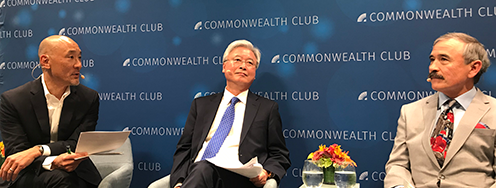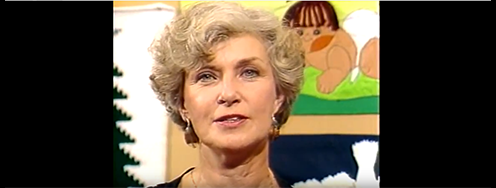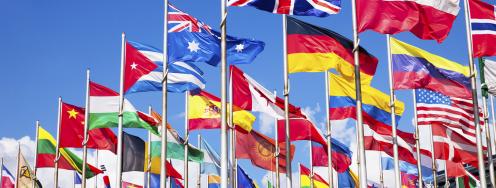Banding Together for a Nuclear Test Ban
In honor of National Women’s History Month, each week Ploughshares Fund will be honoring the women who have been instrumental in advocating for nuclear nonproliferation. This week we are highlighting the work of two incredible women who helped push for a ban on atmospheric nuclear testing: Dr. Louise Reiss and Dagmar Wilson.
On November 1st, 1961, Dagmar Wilson and the Women Strike for Peace organized a march demanding the end of nuclear testing with approximately 50,000 women participating in 60 cities across the U.S. In Washington D.C., Ms. Wilson led 1,500 women to the foot of the Washington Monument as President John F. Kennedy observed the scene from the White House.
In April 1962, Ms. Wilson led a group of 51 women to a 17-nation disarmament conference in Geneva to voice their concerns over nuclear testing. “I decided that there are some things the individual citizen can do,” she told The New York Times in 1962. “At least we can make some noise and see.” At a meeting with the conference’s co-chairmen, the group presented a petition with over 50,000 signatures calling for an end to nuclear weapons testing.
The consequences of radioactive fallout from nuclear testing were a fear many citizens shared, but what about proven scientific evidence of its dangerous effects?
Enter Dr. Louise Reiss. Dr. Reiss was an integral part of the group of scientists who created the Baby Tooth Survey in 1959 at Washington University. During the Cold War, she studied almost 320,000 baby teeth to show how radioactive fallout from nuclear testing was getting into human teeth and bones through the food supply. Looking specifically at levels of Strontium 90 – a chemical created in nuclear explosions and known to cause cancer – Dr. Reiss and her colleagues found that children born in St. Louis in 1963 had 50 times as much Strontium 90 in their teeth as those born in the 1950s.
The study caught the attention of President Kennedy while he was negotiating for an atmospheric test ban treaty. In April 1963, amidst pressure from the scientific community and the public, the U.S., the Soviet Union, and United Kingdom signed the historic treaty banning atomic testing underwater, in space, and in the atmosphere. Both Dr. Reiss and Ms. Wilson played a vital role in instituting a ban on atmospheric nuclear testing.
To honor their legacy, we must continue to press for the ratification of the Comprehensive Test Ban Treaty (CTBT). The CTBT bans all nuclear explosions in all environments, for military or civilian purposes and has been adopted by the UN General Assembly since 1996. However, it has not entered into force as of this writing. The U.S. was one of the 186 countries to have signed the CTBT in 1996, but its decision against ratification clearly undermines the country’s leadership on nonproliferation and our national security since the CTBT would limit aspiring nuclear states.
By following in the footsteps of Dagmar Wilson and Dr. Louise Reiss we can finally put an end to all nuclear testing in the U.S.




